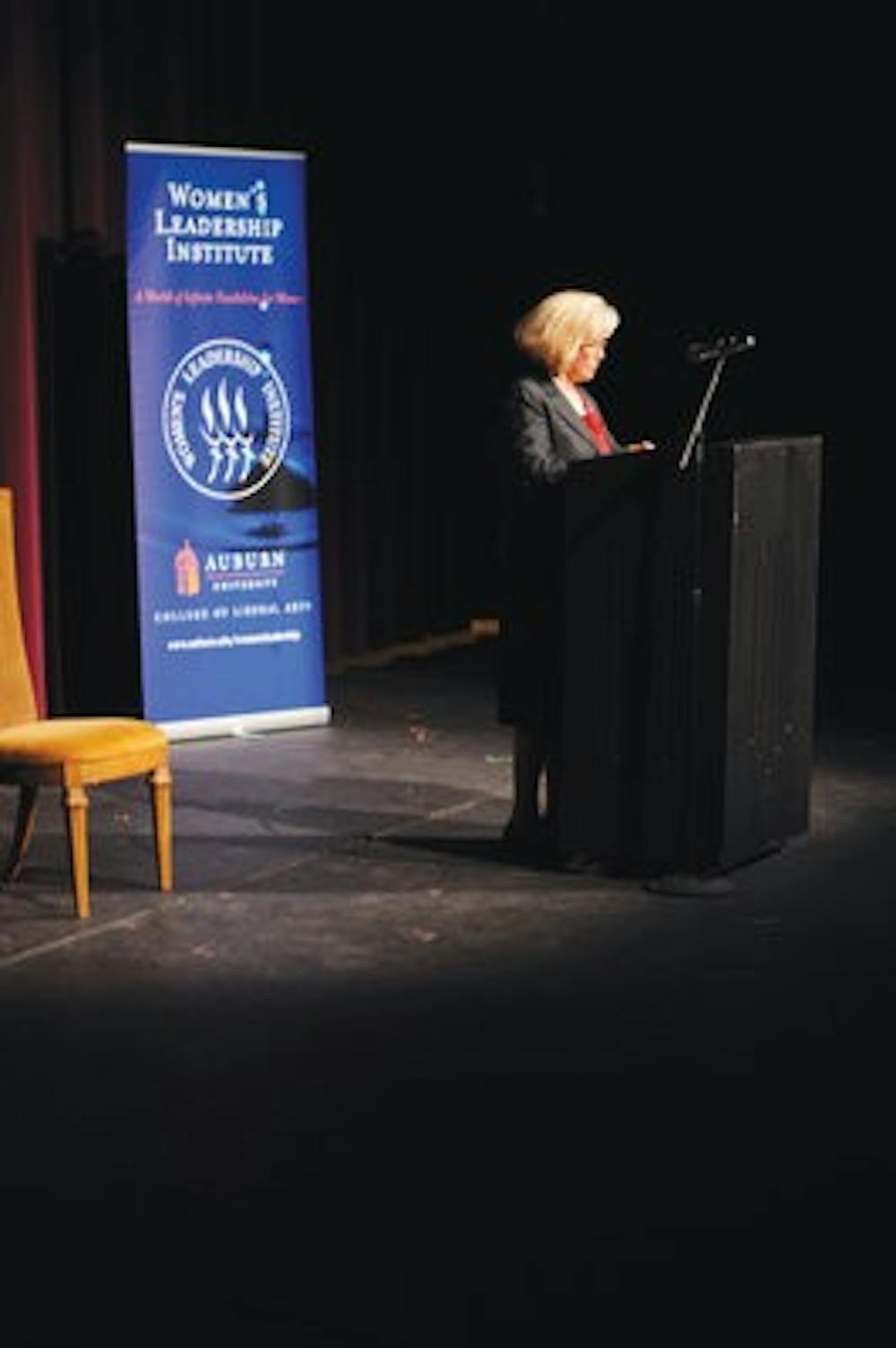Women gained the right to vote in 1920. The Equal Pay Act came in 1963. The Civil Rights Act of 1964 prohibited gender discrimination in the workplace.
However, in 2010, women still have a long way to go.
"I had no idea we were this far behind," said fair-pay activist Lilly Ledbetter in her lecture at Auburn last Thursday. "I thought we were much farther down the road until I got into my fight, and that's why I'm so passionate about it."
After 19 years of employment with Goodyear Tire and Rubber Company, Ledbetter was anonymously tipped off that, although she performed the exact same job as her male peers, her salary was significantly lower. A lawsuit ensued, and she lost her case in the U.S. Supreme Court.
Ledbetter then turned to Congress, and in 2009, President Barack Obama signed into law the Lilly Ledbetter Fair Pay Act, his first bill as president.
The Act tweaked the rules for reporting incidents of pay discrimination to make it easier for women in the workplace.
"We wanted to bring in a very prominent Alabama woman," said Barbara Baker, director of the Women's Leadership Institute, which sponsored the lecture. "We wanted to bring in somebody we thought the students would be able to relate with, so they would feel that they, too, can lead."
Rachel Draper, senior in political science and WLI member, said Ledbetter's story brought a personal approach to the issue of pay inequality.
"It's a story that we all hear, but we never really get to interact with people that have gone through it," Draper said. "I'm sure we're all aware of the pay difference, but her perspective and her story is so powerful because you see what actually happens in the real world."
Ledbetter said in the real world, a woman's hard work does not necessarily earn her equal pay to her male counterparts.
"It should be pretty simple," Ledbetter said. "You hold up your end of the bargain, your employers hold up theirs, and everybody wins, right?"
Equal pay for women is not only just, but also beneficial to the economy, Ledbetter said.
"When women get equal pay for equal work and finally receive their rightful salaries, those dollars can more freely flow back into the larger economy in the form of consumer spending," Ledbetter said. "Justice for America's working women is a perfect economic stimulus package."
Ledbetter's lecture emphasized pay inequality is a nonpartisan issue that affects both men and women equally.
"What I talk about is not Democrat or Republican--this is civil rights," Ledbetter said. "It's a matter of a human right. It's for families."
Ledbetter said this issue is not constrained by region or even by country--it is a worldwide epidemic.
"It was very inspiring," said Rachel Jernigan, junior in communication disorders. "Every word out of her mouth made me want to fight and battle more for the rights of women."
The key to making a difference in the battle, Ledbetter said, is being a conscientious voter, particularly in next week's midterm elections.
"We've got important elections coming up this year," Ledbetter said. "I want you to vote. I want you to investigate the people and don't listen to the commercials.
"Investigate what their records stand for and vote."
Ledbetter said rather than being an isolated incident, pay discrimination will have a domino effect on a person's income for a lifetime.
"When people go out into the workforce and start their job, the day they start, they're laying down what benefits, Social Security and retirement they will get," Baker said. "So if they're paid unfairly from the beginning, they will be paid unfairly after they retire."
Awareness is the best defense against pay inequality, Ledbetter said.
"The main thing is to know everything that pertains to you as an individual and to know how you stand," Ledbetter said. "Because after retirement, like my case, it's too late."
Do you like this story? The Plainsman doesn't accept money from tuition or student fees, and we don't charge a subscription fee. But you can donate to support The Plainsman.





